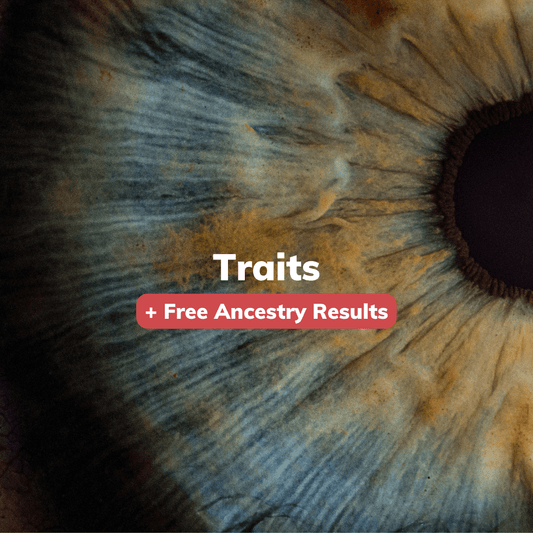
Nicotine addiction
Celine HaarhoffNicotine addiction is a serious problem that affects millions of people worldwide. Although many people can quit smoking, others struggle with addiction for years, often leading to adverse health consequences.
One of the key factors that can determine a person's likelihood of becoming addicted to nicotine is their genetic predisposition. This article will discuss genetic predisposition, how it can affect a person's risk of nicotine addiction, and how a genetic test can help.
First, let's define what genetic predisposition means. Simply put, it is the likelihood that an individual will develop a particular condition or disease based on their genetic makeup. This means that someone with a genetic predisposition to a certain condition is more likely to develop that condition than someone who does not have the same genetic makeup. This is not to say that someone with a genetic predisposition will develop the condition, but rather that they are more likely to do so.
When it comes to nicotine addiction, several genes have been identified as potentially contributing to a person's likelihood of becoming addicted. For example, one gene has been studied extensively is the CHRNA5 gene. This gene produces a protein that helps regulate the activity of certain neurons in the brain. These neurons are responsible for releasing dopamine, a chemical that is associated with feelings of pleasure and reward.
People with a certain variant of the CHRNA5 gene are more likely to become addicted to nicotine than those who do not have this variant. This is because the gene variant leads to increased activity of the neurons that release dopamine, which makes the brain more sensitive to the pleasurable effects of nicotine. In other words, people with this gene variant may feel a stronger desire to smoke to get the pleasurable effects of nicotine.
Another gene that has been linked to nicotine addiction is the CYP2A6 gene. This gene is involved in nicotine metabolism, and people with a certain gene variant may have a slower nicotine metabolism. This can lead to higher levels of nicotine in the body, which may increase the likelihood of addiction.
Symptoms of nicotine addiction can vary depending on the individual and how long they have been smoking. Some common symptoms include:
- Cravings for nicotine
- Difficulty quitting smoking
- Increased irritability or anxiety when not smoking
- Using nicotine to cope with stress or other negative emotions
One of the key benefits of undergoing a genetic test for nicotine addiction is that it can help you understand your individual risk for addiction. This can be particularly helpful if you are trying to quit smoking and want to know what to expect regarding potential challenges. For example, if you have a genetic predisposition to addiction, you may need to be more diligent about avoiding triggers and seeking support to quit smoking successfully.
Another benefit of undergoing a genetic test is that it can provide you with personalized advice and guidance on how to quit smoking. For example, suppose you have a certain variant of the CHRNA5 gene. In that case, your healthcare provider may recommend a specific type of nicotine replacement therapy that is more likely to be effective for you. This can help increase your chances of successfully quitting smoking and reduce your risk of developing adverse health consequences.


